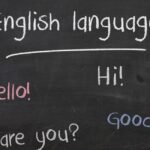As a constant consumer of information, it can be difficult to remember everything that you read.
In the past, you may have written notes in the margins of books or kept a notepad handy to jot down interesting information.
However, with the sheer quantity and variety of information available today, it can be challenging to manage and process all of this information efficiently.
In this blog post, we will explore how you can effectively capture notes from everything you read, watch, or listen to, and remember it all with ease.
Principles of Capture
Before we dive into the different methods for capturing notes, let’s talk about the five personal principles of capture that will help you take notes effectively:
Frictionless
Your note-taking system needs to be as frictionless as possible, so you can easily take notes without disrupting your workflow. You should be able to capture information quickly from anywhere, on any device.
Siled
You should keep all the information that you capture in as few places as possible. If your notes are spread across multiple apps or systems, it becomes challenging to find what you need. So, try to keep everything in one place, ideally two or three.
Levels of Processing
You need to have a system where you can delete the things that you find are not valuable and keep the things that you find are incredibly valuable. Not everything has the same level of importance, so there needs to be a few steps to promote or demote information based on how relevant or valuable it is for you.
Resources
Whatever you capture needs to have resources. You should know who said this, what book it came from, what study it came from, or what web page it came from. It’s important to mention other people’s things without mentioning the resource.
Security
Your notes need to be safe and secure, so you can sleep peacefully at night. You should have a backup system and an organized system for your notes.
Methods for Capturing Notes
Now that we have covered the principles of capture, let’s dive into the practical application of these principles for different types of reading materials.
Digital Books
When it comes to digital books, I use the Kindle app to highlight and make notes.
Kindle automatically saves all of my highlights and notes to a “clippings” file, which I can then easily copy and paste into my Notion page.
This process takes less than 30 seconds and ensures that I never lose any valuable information.
Audiobooks
For audiobooks, I use an app called Readwise, which automatically imports all of my highlights and notes from Audible (the app I use to listen to audiobooks) and sends them to my Notion page.
Again, this process is quick and easy and ensures that I capture all of the important information from my audiobooks.
Physical Books
When it comes to physical books, I still like to write in the margins and take notes on paper.
However, I have found that taking pictures of my notes and uploading them to my Notion page is a great way to keep everything in one place.
This way, I can easily refer back to my notes without having to dig through a bunch of different notebooks.
Online Articles
For online articles, I use a browser extension called Pocket, which allows me to save articles to read later.
Once I have read the article, I can then highlight and make notes using a tool called Hypothesis, which integrates with Pocket.
Hypothesis saves all of my annotations and highlights to my Notion page, where I can easily access them later.
Tweets
Finally, when it comes to tweets, I use a tool called Tweetdeck to save tweets that I want to come back to later.
I then use a tool called Zapier to automatically send any saved tweets to my Notion page. This way, I never miss any important tweets and I can easily refer back to them later.
Conclusion
In conclusion, managing the vast amount of information that we encounter on a daily basis can be overwhelming.
However, by following a few simple principles of capture and using tools like Notion, Kindle, Readwise, Pocket, Hypothesis, and Tweetdeck, we can effectively capture and organize all of the important information that we come across.
Whether you are a student, a professional, or just someone who likes to read, having a system in place for capturing and organizing information can be a game-changer.
Give it a try and see how it works for you!
FAQs
Q: What are the principles of capture for effective note-taking?
A: The five personal principles of capture are frictionless note-taking, keeping all captured information in as few places as possible, having a system for promoting or demoting information based on its importance, ensuring that all notes have resources, and keeping notes safe and secure.
Q: What is the best way to capture notes from digital books?
A: Using the Kindle app to highlight and make notes is a great way to capture notes from digital books.
Kindle automatically saves all highlights and notes to a “clippings” file, which can then be easily copied and pasted into a note-taking app like Notion.
Q: How can notes be captured from audiobooks?
A: Using an app like Readwise, which automatically imports all highlights and notes from the app used to listen to audiobooks (e.g. Audible) and sends them to a note-taking app like Notion, is a great way to capture notes from audiobooks.
Q: What is a good method for taking notes from physical books?
A: Writing notes in the margins of physical books and taking pictures of the notes to upload to a note-taking app like Notion is a good method for taking notes from physical books.
Q: How can notes be captured from online articles?
A: Using a browser extension like Pocket to save articles to read later and a tool like Hypothesis to highlight and make notes in the article, which are then saved to a note-taking app like Notion, is a good way to capture notes from online articles.
Q: What is a good way to save important tweets for later reference?
A: Using a tool like Tweetdeck to save tweets and Zapier to automatically send the saved tweets to a note-taking app like Notion is a good way to save important tweets for later reference.






